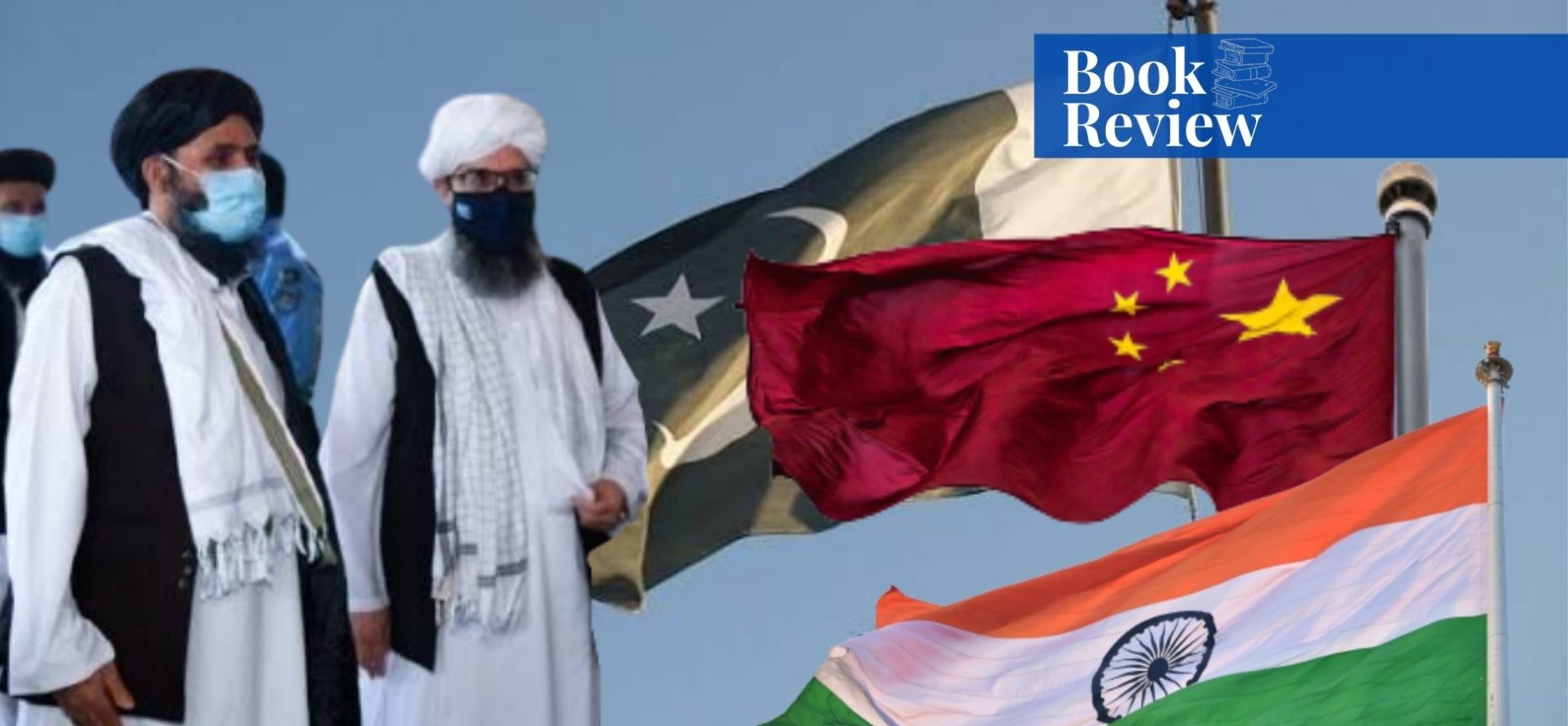Mr Yasir Wazir is a recent graduate of International Relations from Iqra University Islamabad.
An Introduction to Pakistan’s Foreign Policy
Pakistan’s Foreign Policy: A Reappraisal by Shahid Amin is starkly different from other books on Pakistan’s foreign policy in a way that along with providing chronological data, the author enlightens the readers, as well as policymakers, about the meta-illusions that Pakistan’s power elites have shown whenever they formulate decision making.
There are policy options for the decision-making actors to overturn the eternal arch rivalry with India. Optimism, as well as pragmatism, is the epicenter of this masterpiece by Shahid Amin. As the major threat perception at Pakistan’s agenda is Indian ulterior motives, the book revolves around the relations between the two prominent actors and then tries to find a connecting link of this with other states.
Moreover, the author lays down various alternatives for Pakistan, utilizing his experience as an ex-ambassador, to adopt by using relative examples from history as well as the contemporary world.
The Indian Threat & the American Pacts
In the introductory chapter, Mr. Shahid Amin refers to the core ideological, security, and strategic leanings of Pakistan’s foreign policy in a meticulous manner. The chapter highlights Pakistan’s bond with the Islamic world and argues that the main reasons for this bond are the “Indian threat” and the religious foundations of Pakistan.
Furthermore, the author Shahid Amin perfectly points out certain misconceptions about the foreign policy of Pakistan. For instance, he debunked the notion that Pakistan is a subservient state of the US, by and large, when it comes to decision-making. He aptly rejects this flawed argument by subtly stating the fact that Pakistan has always had its own set of national interests.
Chapter 1 of Pakistan’s Foreign Policy: A Reappraisal is quite enchanting in the sense that it perfectly explains the pre-partition differences in British India. The chapter elaborates on the rivalry between Hindus and Muslims of the subcontinent. Though the Muslim League sought to reconcile within united India, the division was inevitable, as described by the author.
In the first part of the second chapter, the author discusses the obstinate desire of paramount Indian leaders for Pakistan to falter and rejoin India. This posture of Indian leaders created an ever-growing threat perception in Pakistan’s power brass. The second part of the chapter throws light on the Kashmir dispute impartially and objectively. The unchanged stances of both countries on the issue of Kashmir are also discussed.
Shahid Amin explains that after having witnessed the Indian ulterior motives to devour Pakistan back into India, Pakistan tried to find a security stabilizer against a larger opponent. The dynamics of the time compelled Pakistan to join the US-initiated security pacts such as SEATO (the Southeast Asia Treaty Organization) and the Baghdad Pact. The Sino-India War of 1962 proved vital for Pakistan, in terms of its relations with China and the Soviet Union as it began to get back on track.
Indo-Pakistan Wars
In the 4th chapter, the author explains the war of 1965 and certain myths attached to this war by various exponents of both states. The chapter further elaborates the unsolicited nature of the war, as both states carried out certain miscalculations which led to a full-fledged war. The three giants of the time – the US, the USSR, and China – remained neutral in the backdrop of the Cold War. The war impacted Pakistan in various ways due to the ill-conceived planning of the strategists.
When it comes to the Second Indo-Pakistan Wars, The best-suited words for the fiasco, according to the author, are “self-delusion” and “irrationality” which perfectly sum up the reasons behind the debacle. After the war, West Pakistan still remained in a sense of superiority and couldn’t digest the independent existence of Bangladesh and Pakistan lost the sympathies of the Muslim world.
In Pakistan’s Foreign Policy: A Reappraisal, Shahid Amin describes that Zulfiqar Ali Bhutto took up the task of resuscitating Pakistan from the unfortunate slumber albeit all of his shortcomings. He performed well on the diplomatic front by convening the Organisation of Islamic Cooperation’s (OIC) summit in Lahore and successfully conducting the Shimla Accords.
However, the 1971 war pushed Pakistan to further enhance the arms race with India. It started to work on nuclear weapons despite all the international pressures. Yet, when the Kargil crisis occurred, Pakistan miscalculated the situation which in turn isolated Pakistan on the international stage, giving India an upper hand. The author perfectly elaborates the shortcomings of Pakistan’s strategists and the hollow nature of the very decision to carry out the mission. As always,
Strained Indo-Pakistan Relations
Barring a few exceptions, the relations between the two arch-rivals remained under strain. There are plenty of hardliners on both sides of the border. Political parties, in each state, soft on the other are dubbed as traitors.
In Pakistan, PML-N (Pakistan Muslim League-N) and Pakistan People’s Party (PPP) used anti-India rhetoric and in India, the Bharatiya Janata Party (BJP) and the Congress pursued the same path. Though the Rann of Kutch and the Indus water adjudication is a slight ray of hope amidst all the bleakness, Nehru is the first to be blamed as he brazenly turned his back on mediation and plebiscite regarding Kashmir.
Nuclear acquisition by both states changed the dimensions of South Asia to a vast extent. The author points out that Pakistan’s answer to the Indian nuclear explosion based on emotionalism has damaged Pakistan a lot. He advises strategists on both sides to revisit their policies. Both India and Pakistan need to wither away from mutual apprehensions. Pakistan needs to come out of the historical superiority of Muslims’ golden era; rationalism is the need of the hour.
The Soviet Invasion
Pakistan’s Foreign Policy also enlightens the readers about the Soviet invasion of Afghanistan and the role which Pakistan played in toppling the USSR. The author refers to certain myths, mainly the ones labeling Pakistan as a rentier state of the US, and asserts that these myths completely neglected the fact that many countries, like the US, China, Saudi Arabia, and Iran, were the front runners for interests and so was Pakistan.
Mr. Shahid Amin explains that due to Iran’s ethnic interests in Afghanistan, Pakistan’s relations with it were strained. Regional quagmire took over as Pakistan shifted its support in favor of the Afghan Taliban. Moreover, once the USSR left Afghanistan, along with certain benefits, Pakistan also suffered by being indulged in various regional confrontations.
Post-9/11 Developments in Pakistan’s Foreign Policy
Post-9/11 developments brought grave concerns for Pakistan as it decided to part ways with the Taliban because it was much greater a risk to confront the sole superpower—the US. Regional relations shifted a lot. Pakistan suffered from various issues, with terrorism being the main one. In spite of all the sacrifices it made, Pakistan was still portrayed as complicit with the Taliban, and its relations with neighboring countries deteriorated very much.
Pakistan’s Relations with the Islamic World & China
In Pakistan’s Foreign Policy, the author highlighted a few prominent Muslim states such as Egypt, Turkey, Iran, Saudi Arabia, Libya, etc. He offers a canny overview of the bilateral relations of Pakistan with these Muslim countries. For the greater part, the relations have remained tranquil, although there are some restraining points too. But, Pakistan successfully managed to attract these states keeping in view the Indian threat perception.
Though the Islamic world is the progeny of the most sophisticated ancient civilization, the internal conflicts tore it apart and since then, there is no going back. Every state works according to its own national interests, setting aside Muslim solidarity, which is not always the case as we have seen in the case of Israel. Muslims can play a dominant role in world politics by being united and setting a vigorous bloc.
China remained an evergreen friend of Pakistan through every thick and thin. Mr. Amin argues that the commonality of interests compelled the two states to forge an enduring bilateral tie. China supports Pakistan on the Kashmir issue, diplomatically and since China is a reliant friend and a trade partner, the China-Pakistan Economic Corridor (CPEC) can make this bond even stronger.
Lessons for Pakistan
The author draws parallels with other states’ foreign policies, such as the former Soviet Union, and warns Pakistan of the repercussions of keeping imbalance between economics and military. The author also advises Pakistani strategists to stop being narrow-minded and along with supporting Kashmir, make better relations with India for the greater good. Rationality is very much demanding; without it, Pakistan will remain stagnant and won’t find a way out as it will be too late.
Final Thoughts
All in all, Pakistan’s Foreign Policy: A Reappraisal by Shahid Amin is a must-read for the students of politics as well as decision-makers. Although at times, subjective interference, on the part of the author, took place, it was meager. Despite the solid analysis of historical events, the only lacking point is that chronologically, the book is not well-compiled; there are major disarrays in terms of the chapter management and numbering.
Moreover, there is a strong emphasis on a single source—S.M Burke—but it would have been even better to add more robust references. In short, it is still a well-written piece and a must-read, setting aside its meager flaws for the myriad of information it contains.
If you want to submit your articles, research papers, and book reviews, please check the Submissions page.
The views and opinions expressed in this article/paper are the author’s own and do not necessarily reflect the editorial position of Paradigm Shift.


















